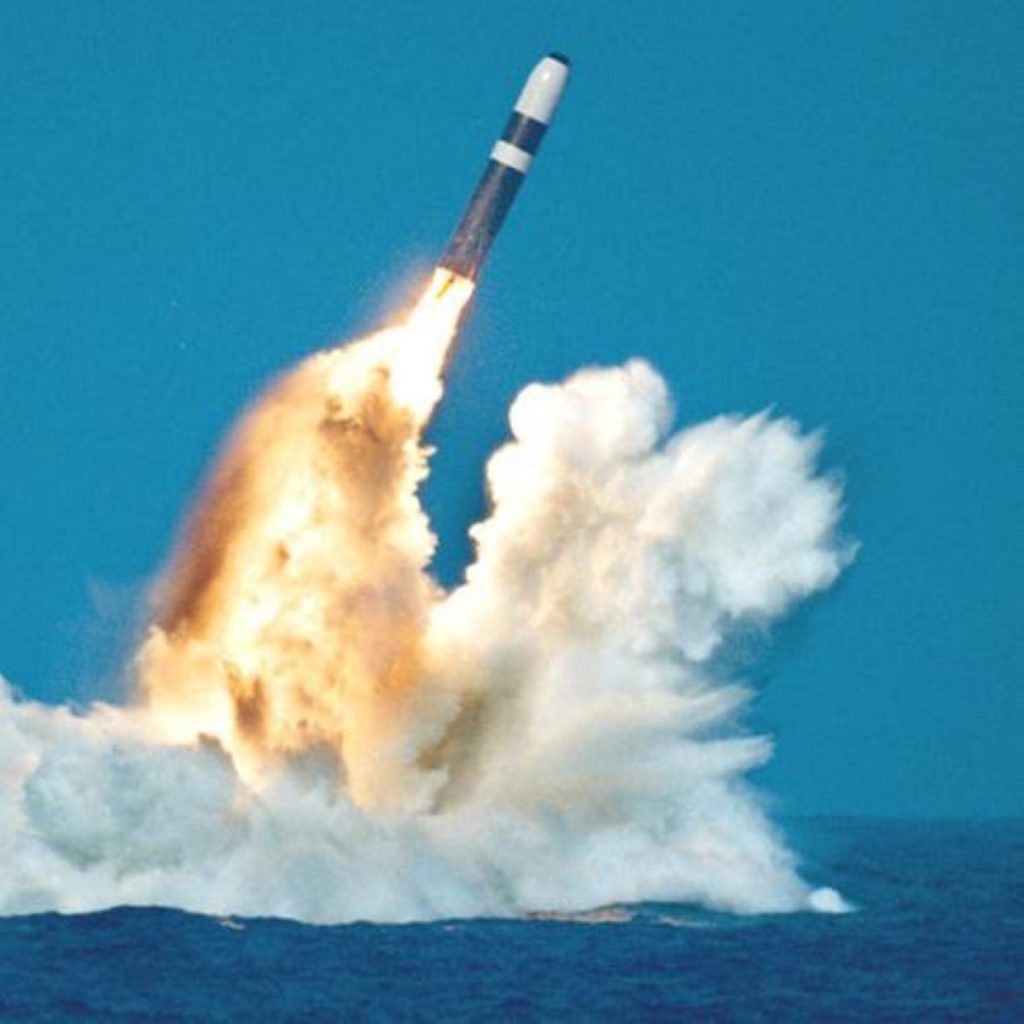UK nuclear policy ‘insane’
By politics.co.uk staff
The government has been accused of its left hand not knowing what the right hand is doing over its ‘contradictory’ attitudes towards nuclear disarmament.
The foreign secretary has unveiled the steps that need to be taken for the world to move towards a nuclear weapon-free future.
But campaigners have turned on the speech over continued plans to replace or upgrade the Trident missile system to a cost of up to £76 billion.


Greenpeace said the Trident plans “severely undermined” David Miliband’s comments.
“Until the government puts plans to replace Trident on hold, anything they say about ridding the world of nuclear weapons is severely undermined,” said the party’s executive director John Sauven.
Kate Hudson, chair of the Campaign for Nuclear Disarmament, said Mr Miliband’s speech, which accompanied a policy information paper from the Foreign Office was a “great disappointment”, which treated Trident as the elephant in the room.
And the Liberal Democrats said the government’s leadership on non-proliferation was threatened by the “premature and provocative” decision to renew Trident ahead of the global disarmament conference next year.
The policy document, which by its own admission “is not about launching new initiatives”, comes after it emerged Barack Obama was prepared to delay the deployment of a US missile shield in eastern Europe to help persuade Russia to begin cutting its stockpile of nuclear warheads.
Mr Obama reportedly hopes to reduce both countries’ arsenals by 80 per cent.
Deputy Russian prime minister Sergei Ivanov has already reacted warmly to the claims.
“Britain is in danger of playing catch-up to the Obama administration, which has already performed a massive policy U-turn on Bush’s attitude to disarmament and missile defence,” said Mr Davey.
“A renewed push for disarmament is crucial to a strategy to deal with non-proliferation, international terrorism and rogue states where the old policies of deterrence have been thrown into doubt.
“The British government will need to do far more, both with our own nuclear arsenal and with cooperation for international control of the nuclear fuel cycle, before these words can be moved beyond rhetoric.”
“Over 100 military and defence experts, backed by the Obama administration, are calling for a new global programme to eliminate nuclear weapons,” Mr Sauven added.
“But our government seems determined to scupper this major new initiative by replacing Trident and tying Britain into nuclear rearmament for the next 40 years.”
Ms Hudson went on to say that Britain had been “overtaken” by President Obama’s vision.
“His intentions are on a par with those of [Ronald Reagan] and [Mikhail]Gorbachev, who achieved the disarmament of thousands of nuclear weapons in the late 1980s,” she said.
“Mr Miliband’s ‘vision’ does not match up.”
The Foreign Office told inthenews.co.uk it was “working hard to reinvigorate the global commitment to a world free from nuclear weapons”.
Yesterday it published a booklet of three conditions and six steps that needed to be taken for widespread disarmament to take place.
- Watertight means to prevent nuclear weapons from spreading to more states or to terrorists at the same time as nuclear energy is expanding
- Minimal arsenals and an international legal framework which puts tight, verified constraints on nuclear weapons
- Finding solutions to the challenges of moving from small numbers of nuclear weapons to zero in ways which enhance security
Prime minister Gordon Brown has already said he wants to “accelerate disarmament amongst possessor states, to prevent proliferation to new states and to ultimately achieve a world that is free from nuclear weapons”.
Both Mr Obama and Britain’s hopes of complete disarmament are stymied by the unclear nuclear objectives of Iran and the belligerence of North Korea.
Although it accepts the challenges are considerable, the Foreign Office insists it wants to end the deadlock of the last decade but admits it will require the active engagement of the entire international community.
“The UK is working to build a broad coalition of governments, international organisations, non-governmental organisations and businesses which share the vision of a world free of nuclear weapons and to forge agreement on how we will work together to make it happen,” the department said.

